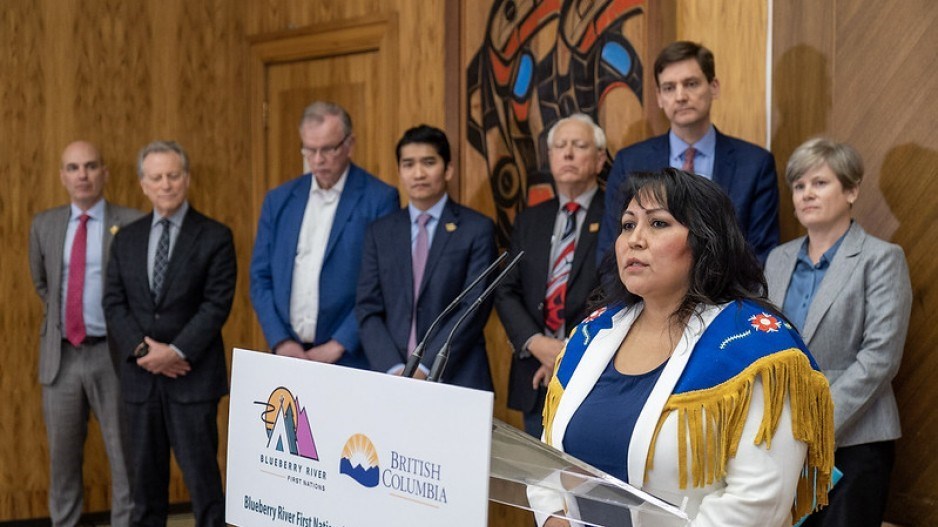A new plan that will restrict oil and gas activity northwest of Fort St. John in order to protect the treaty rights of the Blueberry River First Nation was made public Thursday – sort of.
While the plan was publicly announced Thursday, the plan itself is not yet available to the press or public.
The Gundy High Value 1 Plan is a component of the Blueberry River First Nations Implementation Agreement, signed in 2023 in response to a court ruling that found that the B.C. government had infringed the Blueberry River First Nation’s treaty rights through the “cumulative impacts” of decades of industrial development, including oil and gas extraction. The First Nation is a signatory to Treaty 8.
The Gundy agreement is one of a series of plans being developed for the region that will deal with land use, watershed management and “high value areas.”
"With this agreement, we are working collaboratively to make land, water and resource stewardship decisions and provide industry with greater certainty on where development can occur,” said Josie Osborne, minister of Energy, Mines and Low Carbon Innovation.
The Blueberry River First Nation’s territory includes the Montney Basin – one of the richest natural gas plays in North America. The Gundy plan allows for “limited” oil and gas activities in the prescribed area, according to a B.C. government press release.
“The Gundy plan will establish and implement actions to support the restoration and ongoing practice of Blueberry’s Treaty Rights and essential elements of their way of life like hunting, fishing, trapping and sacred site preservation, while enabling limited petroleum and natural gas (PNG) development under new rules and conditions,” the government press release states.
“The plan provides clearer direction to petroleum and natural gas tenure holders about where they can undertake development causing new disturbance, and where there are protections.”
According to what little information the government has made public about the Gundy plan, it covers two watershed management basins -- the Cameron River and Blueberry River -- an area nearly 53,000 hectares in size northwest of Fort St. John.
Asked why the actual plan has not been made public, a spokesperson for the ministry of Energy, Mines and Low Carbon Innovation said “there are community engagement commitments that need to happen before the document is published.”
“Government felt it was important to share news that B.C. and Blueberry River First Nations have come to agreement on implementation of the Gundy plan,” the spokesperson said.
The B.C. government said it will at some point hold a series of community meetings to share more details of the Gundy plan.
“Responsible resource development has always been the vision to sustain our nations while we carry on the legacy of our ancestors of ensuring our cultural and traditional values, most importantly our treaty rights, are held at their highest regard,” Blueberry River First Nation Chief Judy Desjarlais said in the government news release.
According to the news release, the Gundy plan protects more than 68 per cent of the plan area from new disturbances from oil and gas activities, and will require more involvement of all Treaty 8 First Nations in determining what oil and gas activities can occur.
The Blueberry River First Nation is one of eight First Nations on the B.C. side of the border that are signatories to Treaty 8.




